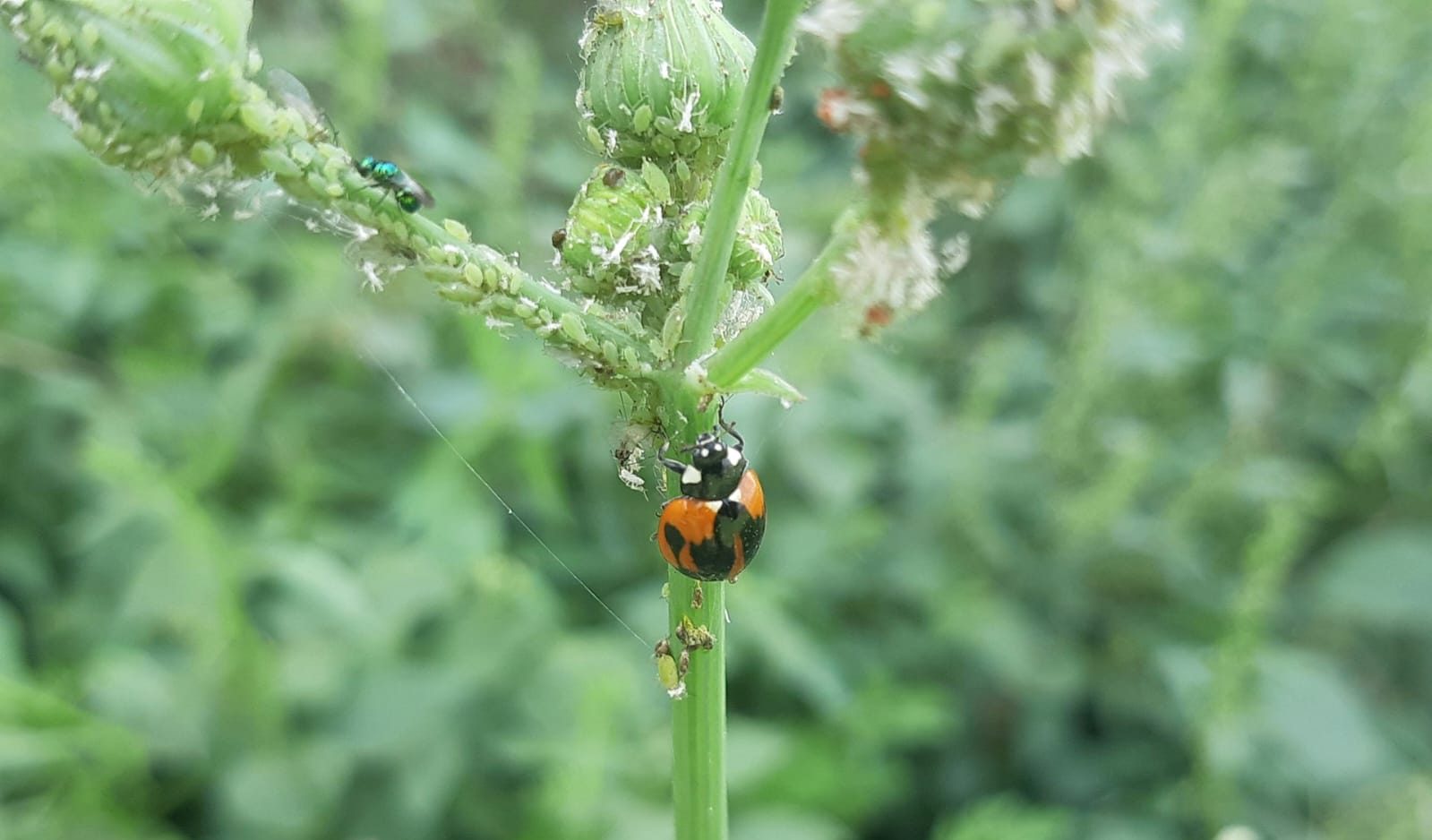Our gardens are dynamic, thriving, living ecosystems. We raise fruits, veggies, and flowers, giving pollinators and other helpful animals a haven. However, this luxuriant setting may also draw unwelcome visitors in the form of bugs that spread illness, eat leaves, and sap plant fluids. Here’s where natural predators, nature’s superheroes, come into play.
Natural Predators: Who are they?
These beneficial creatures are sometimes disregarded, but they are essential to keeping your garden balanced and healthy. They serve as guardians, ensuring the health and growth of your plants by feeding on pest populations.
Beneficial Insects for Your Garden
“Natural predators” refer to various animals, from the recognizable to the intriguing. Here are a few typical garden guards you might draw in.
Ladybugs (Ladybird Beetles): There’s a reason these vividly colored bugs are so popular. They readily consume aphids, mealybugs, and other soft-bodied insects. These microscopic insects deplete plants of life, endangering the garden’s health.

Lacewings: These insects are amazing to see because of their tiny, lace-like wings. With delicate wings, it flits from leaf to leaf. But their larvae are fierce predators that eat mealybugs, scale insects, and aphids.

Praying Mantises: These amazing insects have folded forelimbs like a prayer and are ambush predators. It’s a silent executioner that strikes when bugs get close. They wait patiently for naive prey, such as caterpillars, grasshoppers, and even tiny frogs.

Minute Pirate Bugs: These tiny insects, not much bigger than a pinhead, are formidable warriors against their kind. They go after several insect pests, such as leafhoppers, whiteflies, and thrips.
Advantages of Natural Predators
There are several advantages that natural predators offer to your garden.
Decreased Dependency on Pesticides: Natural methods to control bug populations can reduce the need for harsh chemical pesticides. This keeps pollinators and helpful insects safe and shields your plants from dangerous pollutants.
Extensive Pest Control: Natural predators create a self-sufficient ecosystem in your garden. Predator populations flourish when there are pests to consume, which eventually controls pest outbreaks.
Improved Biodiversity: A garden teeming with natural predators produces a more varied ecosystem. This encourages a healthy balance in the garden and draws in other useful animals, like pollinators.
Tips for Drawing Useful Insects to Your Garden
Plant a Variety of Flowers: Ladybirds, lacewings, hoverflies, and other helpful insects are drawn to various flowers. These flowers usually feature tiny, flat blossoms that are full of nectar.
Provide Overwintering Habitat: Establish a refuge for nocturnal natural predators. This could be creating a ladybird hotel, laying dead plant material in your garden, or giving solitary bees hollow stems.
Avoid harsh pesticides: Broad-spectrum insecticides kill beneficial insects and pests without distinction. If necessary, choose specific organic controls and apply them sparingly.
Result: A Healthy Garden Ecosystem
You are fostering a healthy, thriving ecosystem by nurturing a population of natural predators in your garden. These protectors put out a lot of effort to maintain the health of your plants and the absence of pests in your garden. You may build a haven for the beauty of nature and your tasty homegrown harvest by giving them a warm and inviting habitat and staying away from dangerous chemicals. Therefore, remember that ladybirds and spiders are helpful partners rather than enemies in pursuing a flourishing garden the next time you see them in your yard.
Remember, predators prevail in the quiet battle of petals and leaves.
Happy gardening.


Leave a Reply